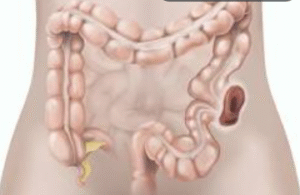Overview
Morning sickness is a common condition experienced during pregnancy, characterized by nausea and vomiting, especially in the early months. In Korea, many expectant mothers face morning sickness, and while it is usually mild and temporary, in some cases it can be severe and require medical attention. With South Korea’s advanced prenatal care system and wide access to both traditional and modern treatments, women can receive effective care for managing morning sickness and its complications.
What is Morning Sickness?
Morning sickness refers to nausea and vomiting during pregnancy, most commonly occurring during the first trimester. Despite its name, it can occur at any time of the day. While most cases are mild, some women experience hyperemesis gravidarum, a severe form of morning sickness that can cause dehydration and weight loss.
Symptoms
- Nausea (often in the morning, but may last all day)
- Vomiting
- Loss of appetite
- Food aversions or sensitivity to odors
- Mild dehydration in prolonged cases
- Fatigue and weakness
Causes
The exact cause of morning sickness is not fully understood, but contributing factors include:
- Increased levels of pregnancy hormones (hCG and estrogen)
- Enhanced sensitivity to smell and taste
- Gastrointestinal changes during pregnancy
- Possible genetic and metabolic influences
Risk Factors
- First-time pregnancy
- Multiple pregnancy (twins or more)
- Family history of severe morning sickness
- High stress or fatigue
- History of motion sickness or migraines
Complications
While most cases are mild, complications may include:
- Severe dehydration (in hyperemesis gravidarum)
- Nutritional deficiencies
- Weight loss during pregnancy
- Electrolyte imbalances
- Hospitalization in severe cases
Prevention
- Eating small, frequent meals
- Avoiding strong odors and trigger foods
- Staying hydrated with water, ginger tea, or electrolyte drinks
- Getting adequate rest and reducing stress
- Taking prenatal vitamins as prescribed by a doctor (in some cases, vitamin B6 supplements help)
Treatment Options in Korea
South Korea offers a variety of modern and supportive treatment approaches for morning sickness, from lifestyle adjustments to hospital-based care for severe cases.
- Diagnosis
- Clinical evaluation based on symptoms
- Blood tests and urine tests for dehydration or nutritional deficiency
- Ultrasound to rule out multiple pregnancy or other complications
- Medical Treatments
- Vitamin B6 supplements and safe anti-nausea medications (as prescribed by obstetricians)
- Intravenous fluids in cases of dehydration
- Nutritional support for women with significant weight loss
- Supportive Therapies
- Dietary counseling by prenatal specialists
- Ginger-based remedies, widely used in Korea for nausea
- Acupuncture and Korean traditional medicine (Hanbang) therapies, offered in specialized women’s clinics, sometimes used as complementary care
- Hospital Care
- For severe hyperemesis gravidarum, admission to leading hospitals such as Seoul National University Hospital, Asan Medical Center, and Samsung Medical Center may be required
- Multidisciplinary support including obstetrics, nutrition, and internal medicine
- Long-Term Follow-Up
- Regular prenatal checkups to monitor the mother’s and baby’s health
- Psychological support for managing pregnancy-related stress and anxiety













